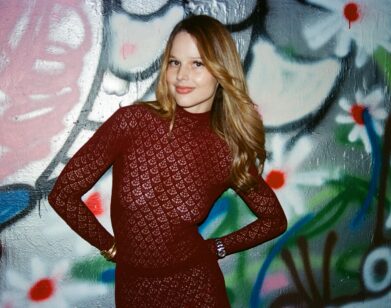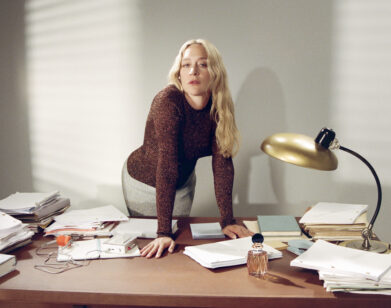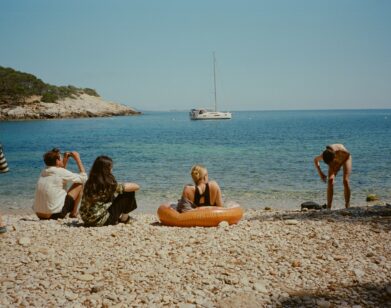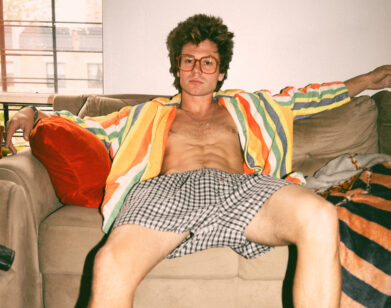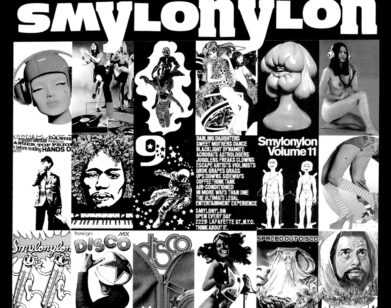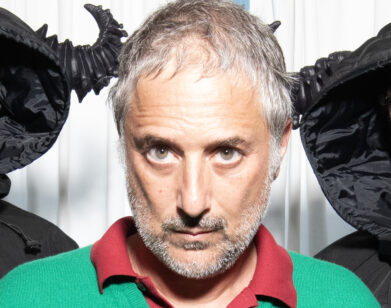on second thought
Chloë Sevigny Revisits (and Revises) Her Interview Cover Story From 1995

Dress by Richardson. Ring Chloë’s Own.
In the summer of 1995, Kids, a vérité polemic about the perils of growing up in New York City, divided and disturbed audiences in equal measure. It also minted a number of overnight stars, including its writer, Harmony Korine, and a then–20-year-old Chloë Sevigny, appearing in her first film role. Shortly after the film’s controversial release, she appeared on the cover of this magazine. Here, she revisits (and revises) some of the stuff she said to Ingrid Sischy back then.
———
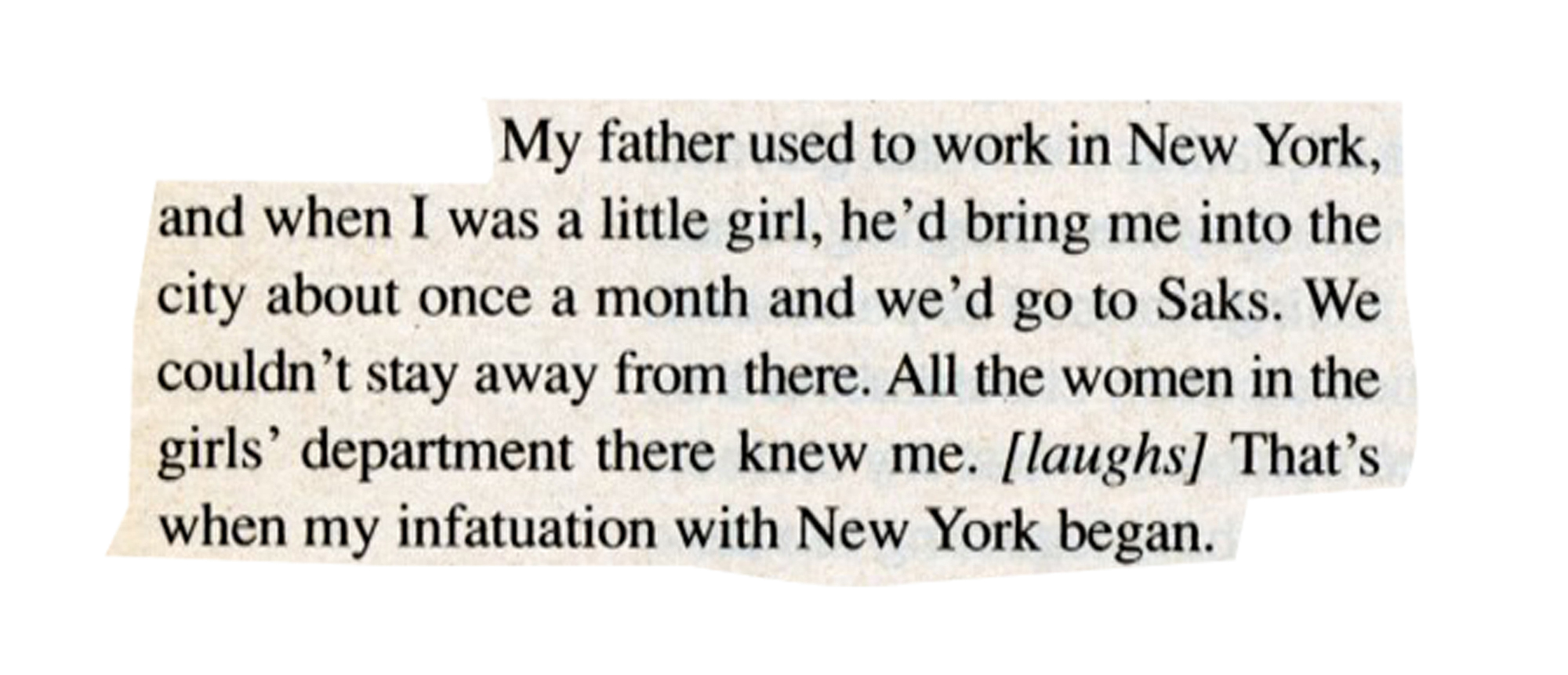
“My family still lives in Connecticut, so I come in and out through Grand Central Station, and it’s a very overwhelming sense-memory experience, because my father passed away, so the feelings of being with him, and him bringing me to this magical place, and what that meant to me, and his love of New York and him sharing that with me; it’s really sentimental.”
———

“I grew up in Darien, Connecticut, which is a wealthy community and we didn’t have as much money. It was a real struggle for my father. Any sense of bullying I ever got was around that. Like, ‘Your mom drives a Honda, you’re poor.’ And then my family was unconventional. My father was an intellectual, and my brother and I always rebelled against the status quo in the town, especially my brother. And that sprinkled into me and my outlook.”
———
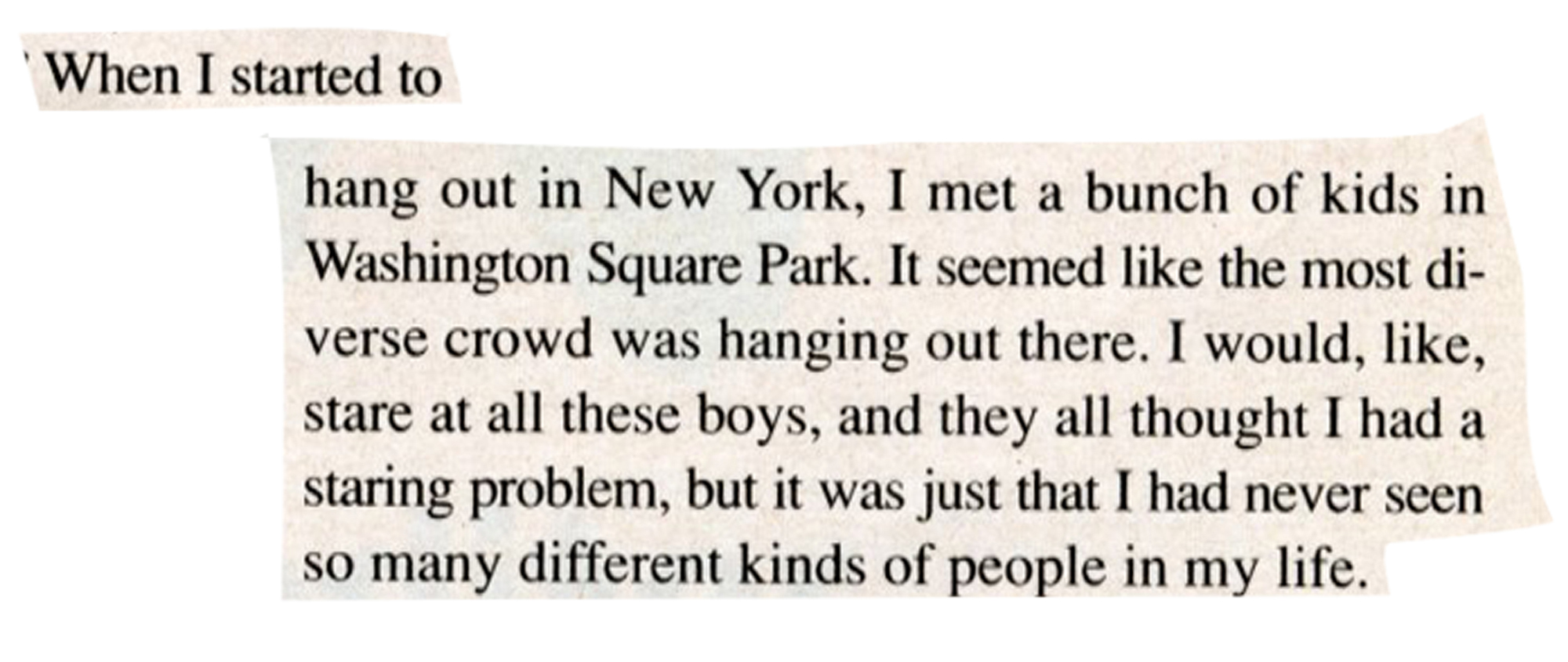
“I still have a staring problem. Sometimes people are like, ‘What are you looking at?’ And I’m like, ‘Well you’re just so beautiful, and your outfit is so great. I can’t stop looking at you.’ Even my husband’s like, ‘You really look at these kids for too long.’ I’m sorry but I have to take in their whole essence.”
———
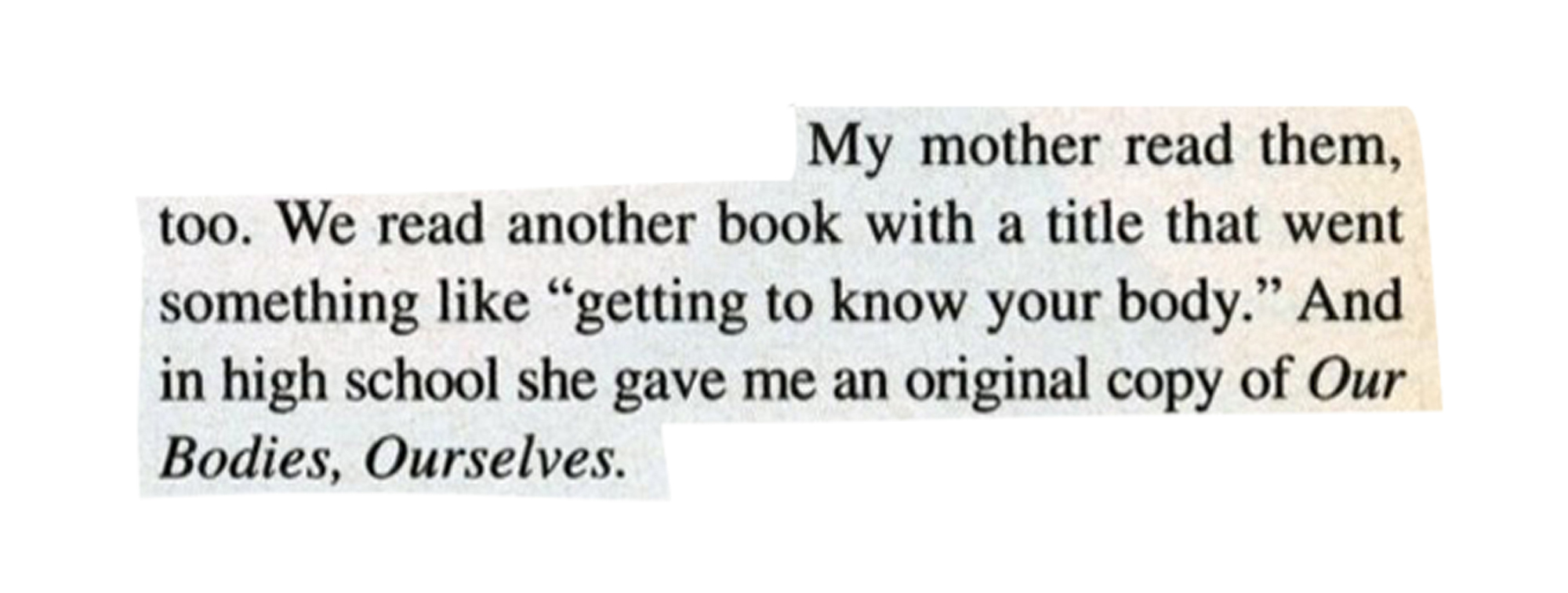
“One of the first things that I thought when I read this interview was, ‘Oh my god, my poor mother.’ She’s pretty conservative, and to think of all the things I’ve put the poor lady through.”
———
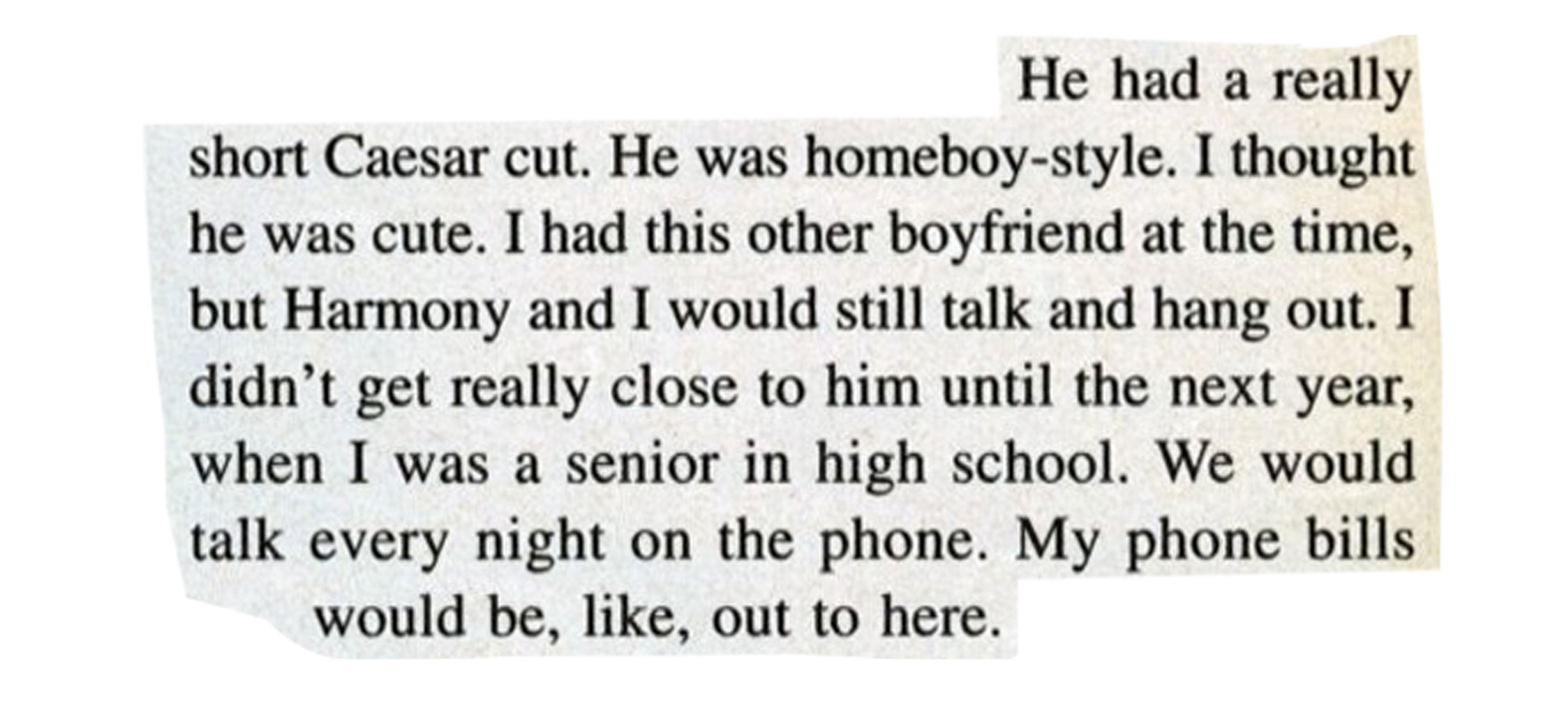
“I’ve always gravitated towards people that were doing things. Harmony always knew what he wanted to do, had a lot of interests, and I was very attracted to that. He was very charismatic, and just fun to be around. I remember we went to see Dinosaur Jr. and there was an after-party, and we got someone’s pass and went to a Kinko’s and made photocopies, so we could get in. We just got up to stuff.”
———
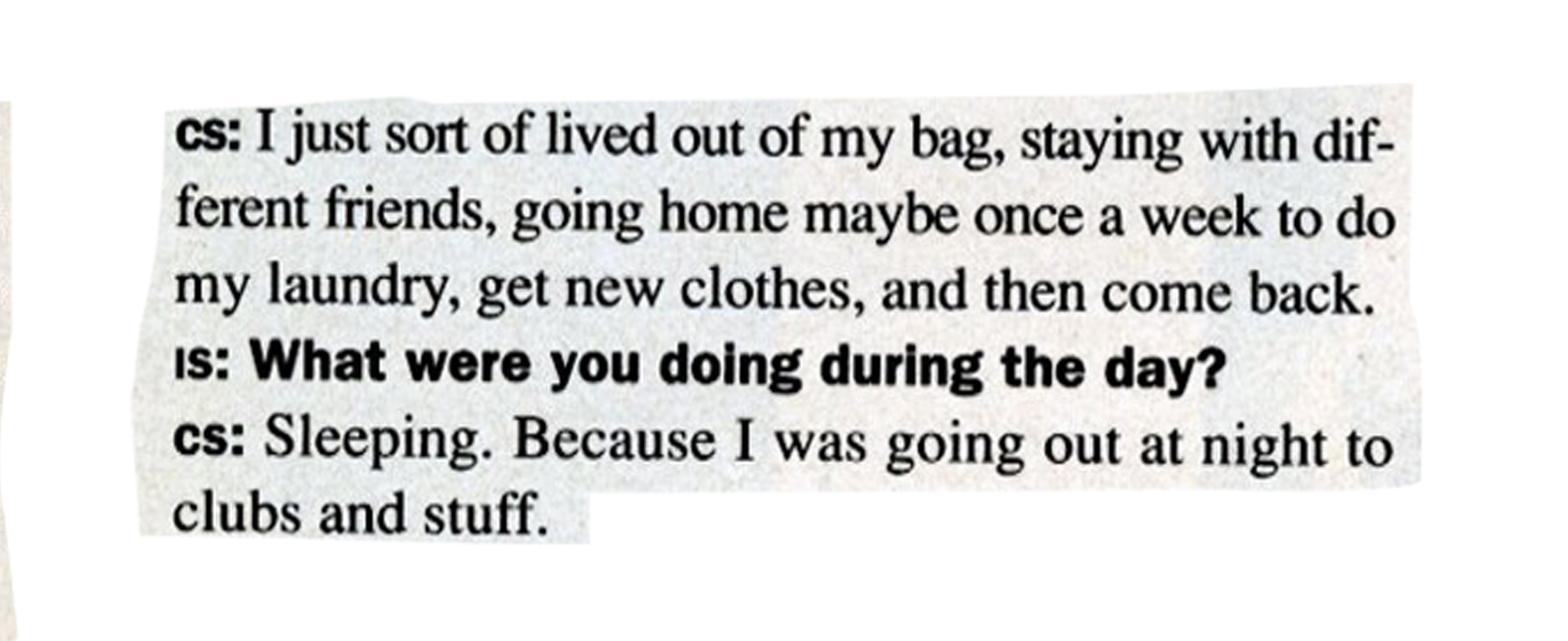
“I moved to Park Slope a couple of years ago, and it was so far that when I had something to do in the city, I’d bring stuff in my backpack and go to a bathroom at Grand Central or Port Authority and change. I was like, ‘This is exactly that feeling.’”
———
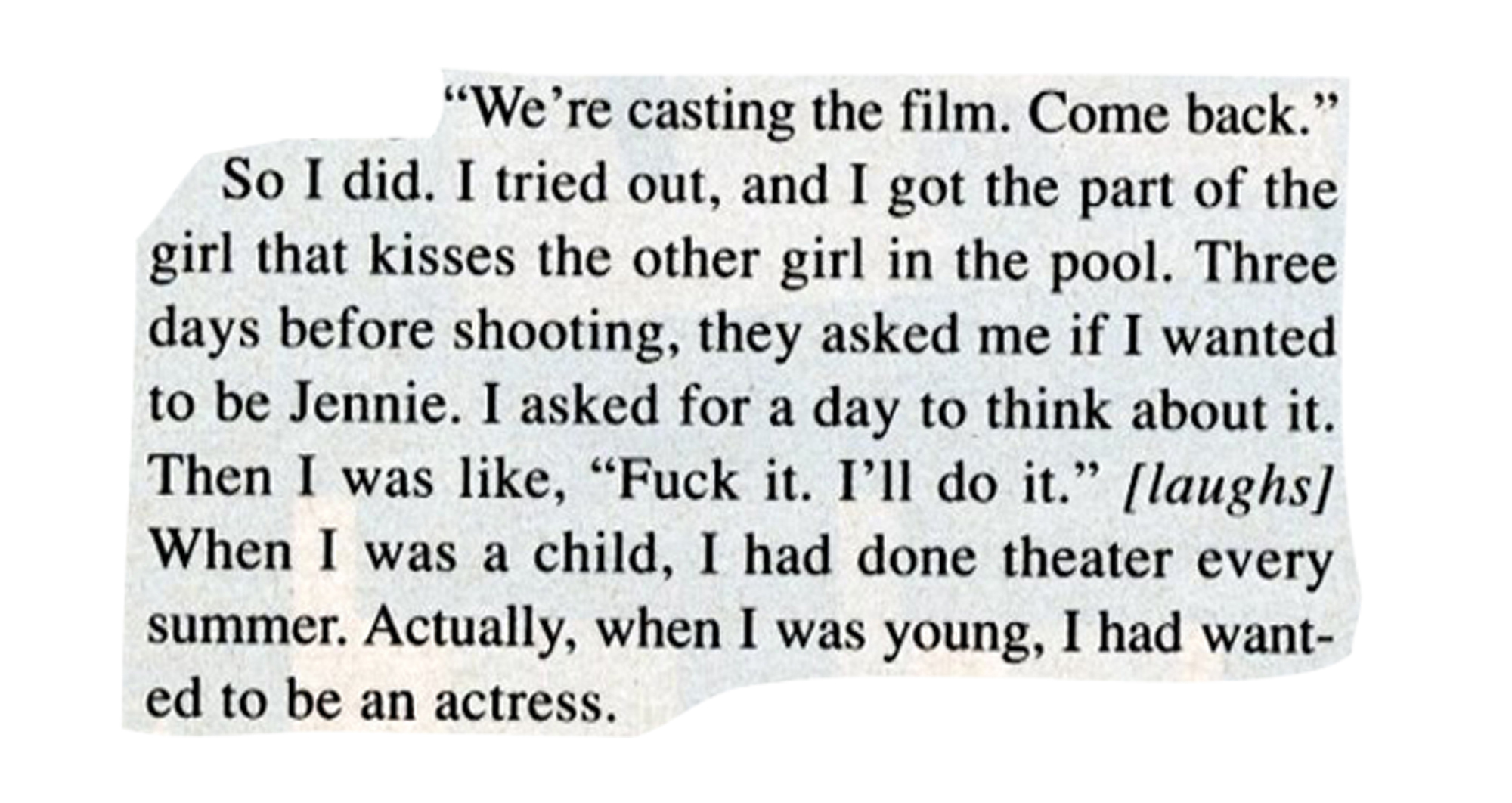
“I had done commercials when I was younger, and I was already appearing in music videos for Sonic Youth, The Lemonheads, and some other bands. So I was already trying to figure out what I wanted to be. I wasn’t going to be a model, because I didn’t really have the looks or the height, but I wanted to maybe do something in fashion. I was very involved with Bernadette Corporation and X-girl. Sofia Coppola was doing her collection Milk Fed, and she asked me to be in the show. I was like, ‘I don’t think I want to be in shows, I think I want to be in the front row.’”
———
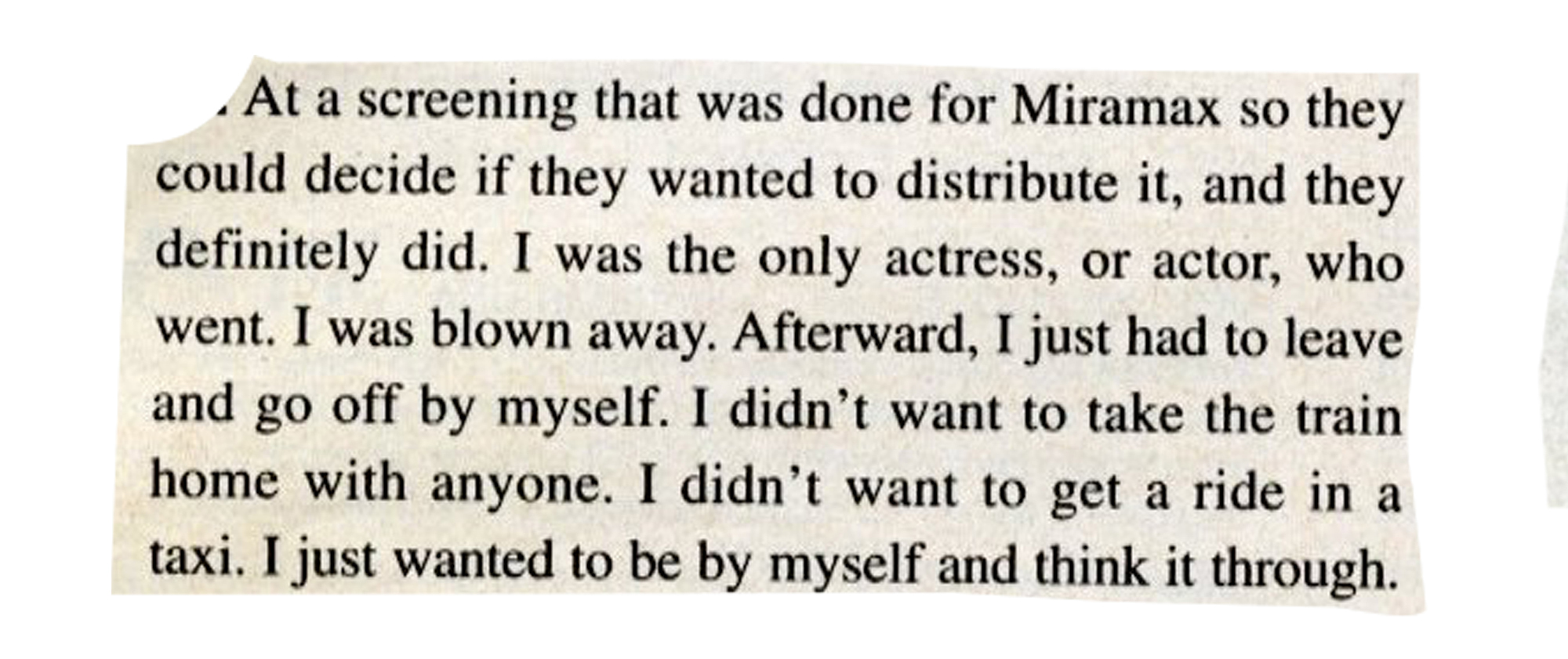
“It was really scary to see myself. I think I had certain expectations that weren’t met, and was trying to wrap my head around that. Maybe I was freaked out by how extreme it was.”
———
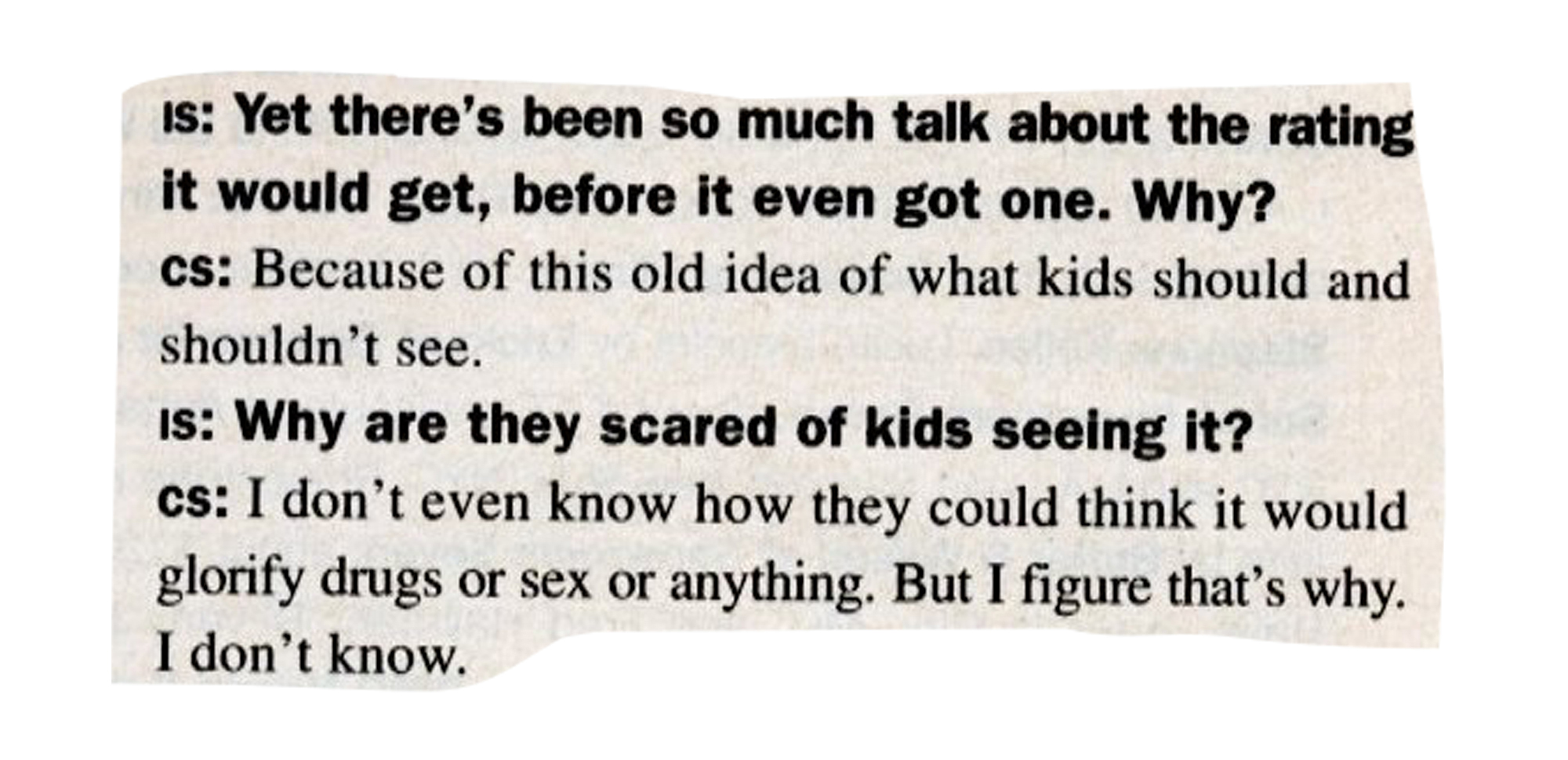
“The last time I saw it was at the 25-year anniversary at BAM, and I was like, ‘I am now that person that’s shocked by this movie.’ But I do think that the ’90s Miramax machine really leaned into that. That’s why they didn’t bring any of the actors to Cannes or Sundance, because they wanted the audience to think that we were still on the streets.”
———
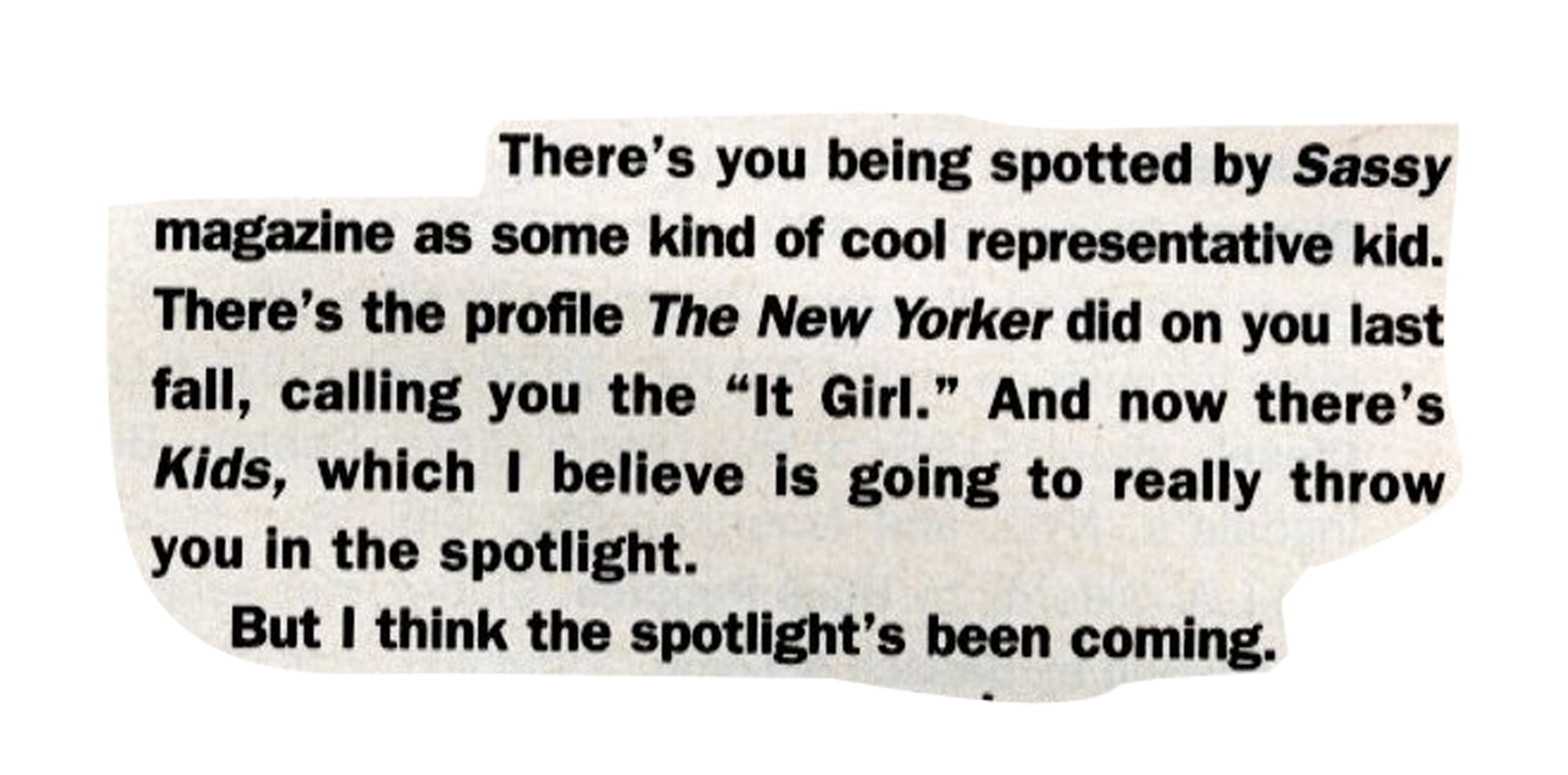
“I wasn’t prepared to talk to the press, and I even hear myself sometimes throughout this interview, cursing and stuff, trying to mimic Harmony or someone else. I didn’t have my own voice or know what I wanted to say. It felt like a lot of pressure.”
———
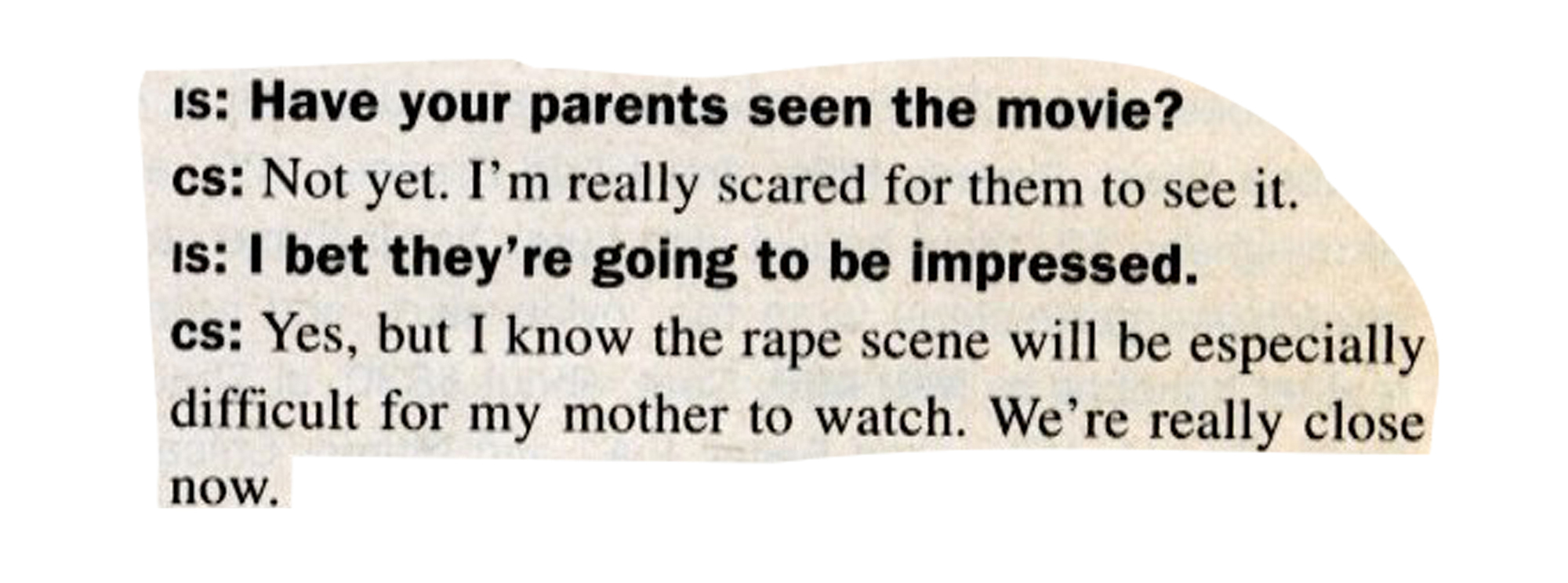
“There was so much hoopla; the New Yorker thing had already come out, and my father had a subscription. My father was subversive. They were like, ‘Alright, this is our little girl. She’s doing her thing.’”
———
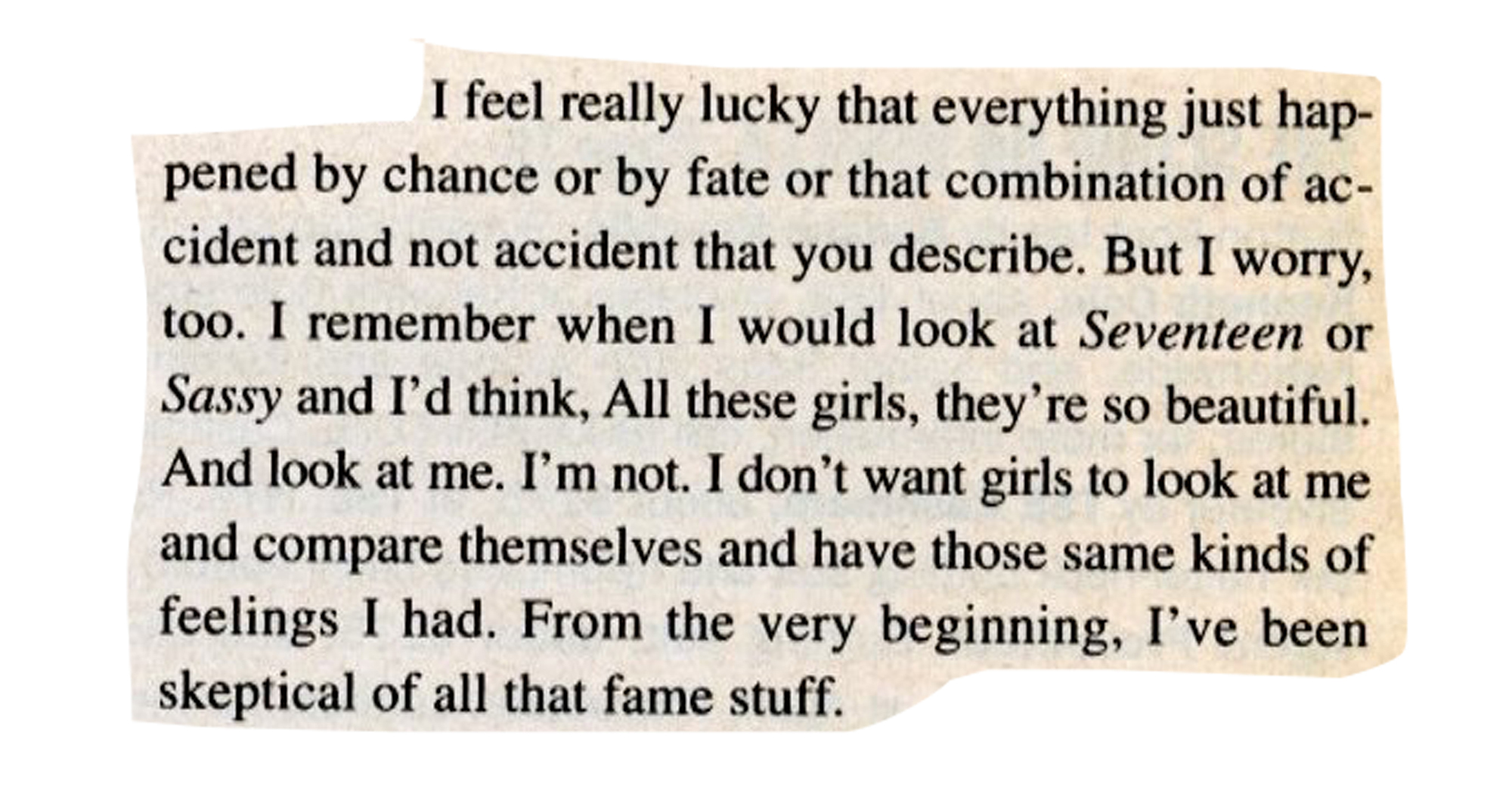
“There is a rich history of people being discovered on the street, especially younger people. I talk a lot about opportunity versus exploitation when you’re working with unknowns, that rich history through cinema. Luckily my parents were very present, and Cary Woods, the producer, helped me find an agent, and had his assistant manage me loosely in the beginning. I was really helped and steered along, but I also wanted it and could handle it.”
———

“I got offered some parts and turned them down. I waited for Trees Lounge because it was a cast full of New York character actors. That was what I desired, to be a character actor, which I think I am, but people just don’t credit me as such.”
———
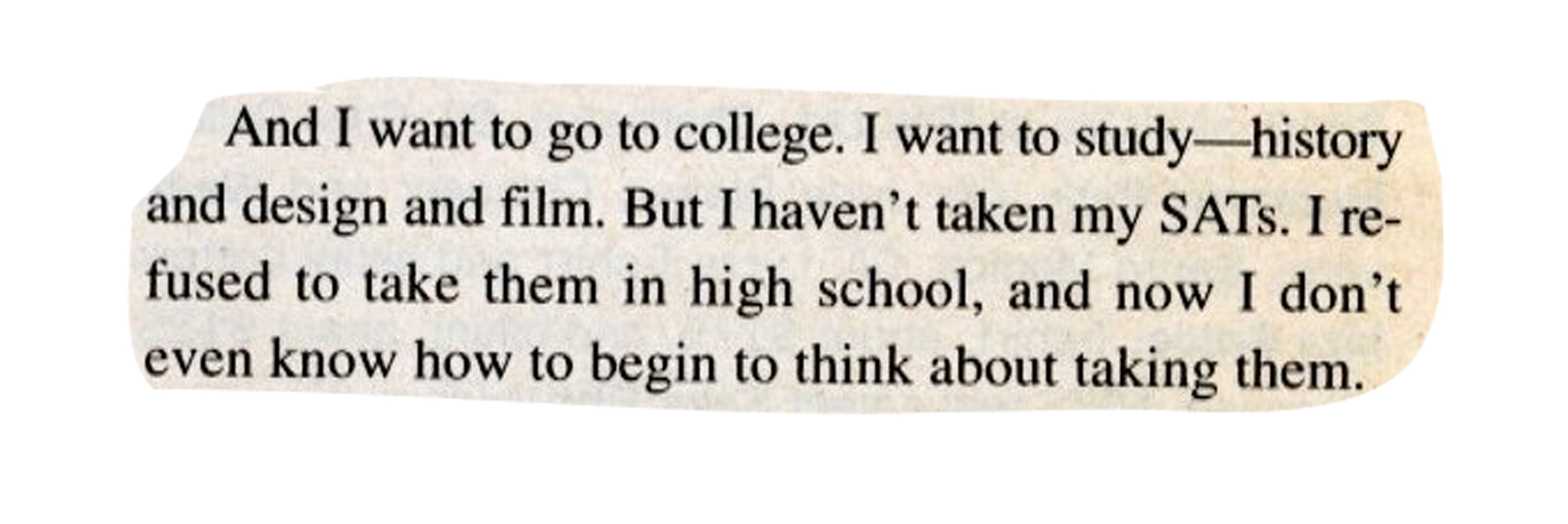
“In all honesty, my father passed away and I had to help my mother financially. That’s part of why a lot of fashion stuff took over my career early on: because I had to make money, so I started really taking advantage of those opportunities.”
———

“Does anybody say that? So bizarre.”
———
Hair by Dennis Lanni.
Makeup by Devra Kinery.

